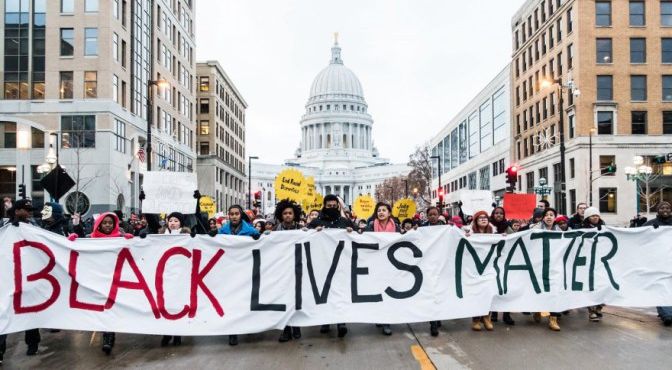|
What is the 4th of July to African Americans?
-- What is its meaning from 1776 to 2015?
|
|
As I prepare to attend the fireworks at the annual Red, White, and Boom celebration in Columbus, Ohio, I am reminded to how this celebration has impacted the lives of African Americans throughout our history. While our nation celebrates, too many African Americans live with the frustration of a different reality. Their reality is captured in several reflections that continue to linger for the 239 years since the signing of the Declaration of Independence.
The politicians keep saying "We need to have a conversation about race." Well, this is what the conversation is like from the African American perspective. Take a look at these voices over the past 150 years.
 In a speech in 1851, Sojourner Truth spoke before Women's Convention in Akron, Ohio, and asked this question: In a speech in 1851, Sojourner Truth spoke before Women's Convention in Akron, Ohio, and asked this question: "I have borne thirteen children, and seen most all sold off to slavery, and when I cried out with my mother's grief, none but Jesus heard me!
And ain't I a woman?"
 On July 5, 1852, Douglass gave a speech at an event commemorating the signing of the Declaration of Independence, held at Rochester's Corinthian Hall. His words were sharp and critical: On July 5, 1852, Douglass gave a speech at an event commemorating the signing of the Declaration of Independence, held at Rochester's Corinthian Hall. His words were sharp and critical:"What, to the American slave, is your 4th of July? I answer; a day that reveals to him, more than all other days in the year, the gross injustice and cruelty to which he is the constant victim. To him, your celebration is a sham; your boasted liberty, an unholy license; your national greatness, swelling vanity; your sound of rejoicing are empty and heartless; your denunciation of tyrants brass fronted impudence; your shout of liberty and equality, hollow mockery; your prayers and hymns, your sermons and thanks-givings, with all your religious parade and solemnity, are to him, mere bombast, fraud, deception, impiety, and hypocrisy -- a thin veil to cover up crimes which would disgrace a nation of savages. There is not a nation on the earth guilty of practices more shocking and bloody than are the people of the United States, at this very hour."
 On August 28th, 1963, Martin Luther King Jr. offered this observation about the Declaration of Independence: On August 28th, 1963, Martin Luther King Jr. offered this observation about the Declaration of Independence:In a sense we've come to our nation's capital to cash a check. When the architects of our republic wrote the magnificent words of the Constitution and the Declaration of Independence, they were signing a promissory note to which every American was to fall heir. This note was a promise that all men, yes, black men as well as white men, would be guaranteed the "unalienable Rights" of "Life, Liberty and the pursuit of Happiness." It is obvious today that America has defaulted on this promissory note, insofar as her citizens of color are concerned. Instead of honoring this sacred obligation, America has given the Negro people a bad check, a check which has come back marked "insufficient funds."
 On this 4th of July, 2015, we approach the celebration of the Declaration of Independence with smoke of Black church buildings burning still in the air, along with the sad mourning of the Charleston massacre at Mother Emanuel A.M.E. Church. Once again, we have to remind American that Black Lives Matter. The sentiment of Africans Americans is captured in the hashtag #BlackLivesMatter. On this 4th of July, 2015, we approach the celebration of the Declaration of Independence with smoke of Black church buildings burning still in the air, along with the sad mourning of the Charleston massacre at Mother Emanuel A.M.E. Church. Once again, we have to remind American that Black Lives Matter. The sentiment of Africans Americans is captured in the hashtag #BlackLivesMatter.On July 1, 2015, in an article titled, Farewell to America, Gary Younge -- a Black foreign correspondent for The Guardian from the UK -- shares this observation:
"Racism does what it says on the packet; it discriminates against people on the grounds of race. It can be as arbitrary in its choice of victim as it is systemic in its execution. And while it never works alone (but in concert with class, gender and a host of other rogue characters), it can operate independently. No one is going to be checking my bank account or professional status when they are looking at my kids." As we celebrate, we must also renew our resolve to rid our nation of this racist scourge. It is not a post-racial America that I long for, but a post-racist America. It is an exercise in denial when someone says, "I don't see color." I want you to see me. I just don't want you to trample on my dreams with systemic racist superiority.
The struggle continues.
|


